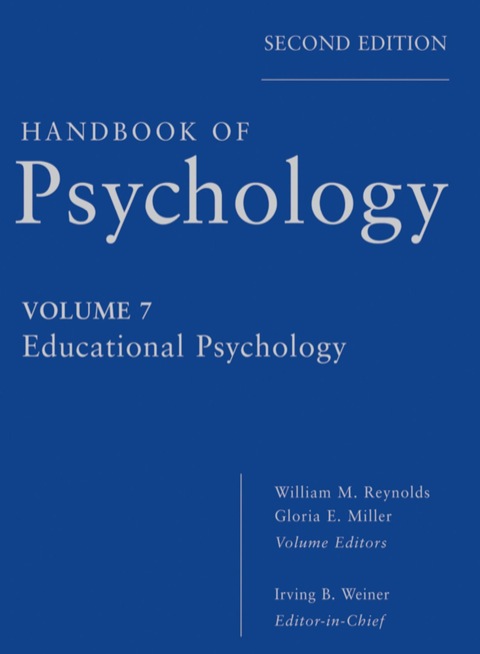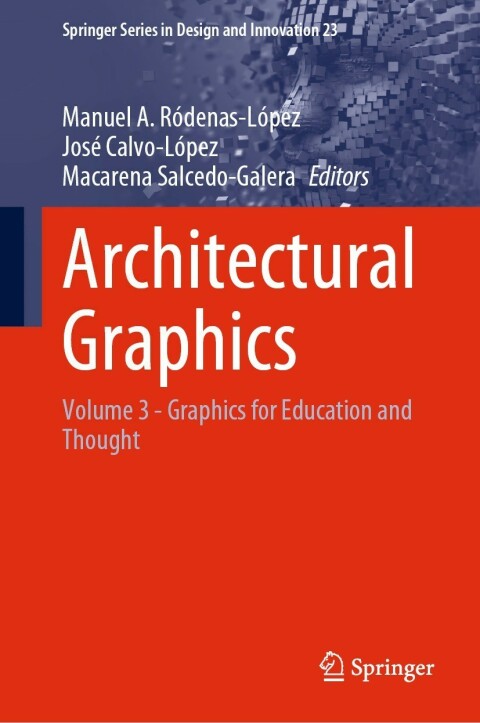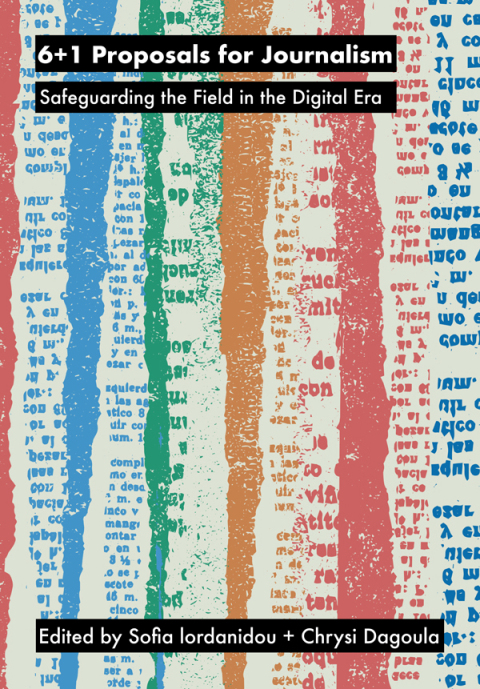Description
Efnisyfirlit
- Handbook of Psychology
- Contents
- Handbook of Psychology Preface
- Volume Preface
- Contributors
- Chapter 1 Educational Psychology: Contemporary Perspectives
- Introduction to Educational Psychology
- Current Presentations of the Field
- Distinctiveness of This Volume
- Overview of This Volume
- Cognitive and Regulatory Contributions to Learning, Development, and Instruction
- Contemporary Theories of Intelligence
- Self-Regulation and Learning
- Metacognition and Learning
- Motivation and Classroom Learning
- Sociocultural, Instructional, and Relational Processes
- Vygotsky and Sociocultural Approaches Teaching and Learning
- Moral Character Development
- Cooperative Learning and Achievement
- Relationships Between Teachers and Children
- School Adjustment
- Early Education and Curriculum Applications
- Early Childhood Education
- Psychology of Literacy and Literacy Instruction
- Mathematics Learning
- Learning With Digital Media: Contemporary Theory and Research
- Psychology in the Schools
- School Psychology
- Gifted Education Programs and Procedures
- School-Related Behavior Disorders
- Perspectives on Educational Programs, Research, and Policy
- Learning and Pedagogy in Initial Teacher Preparation
- Educational Programs, Research, and Policy
- Educational Psychology and Educational Transformation
- Future Perspectives in Educational Psychology
- Summary
- References
- Chapter 2 Contemporary Theories of Intelligence
- Why Theories of Intelligence Matter to Society
- The Pervasiveness of Intelligence-Related Measurements
- The Societal System Created by Tests
- The Discovery of an Invisible Hand of Nature?
- A Societal Invention?
- A Synthesis?
- Classical Theories of Intelligence and Their Contemporary Counterparts
- Implicit Theories
- Explicit Theories
- Implicit Theories
- Explicit Theories
- Conclusions
- Challenges to Traditional Theories and Beliefs About Intelligence
- References
- Chapter 3 Self-Regulation and Learning
- Self-Regulation and Learning
- Theories of Self-Regulation
- Assumptions
- Operant Theory
- Self-Monitoring
- Self-Instruction
- Information Processing Theory
- Social Constructivist Theory
- Social Cognitive Theory
- Self-Regulation Research
- Effective Self-Regulatory Processes
- Operation of Self-Regulatory Processes During Learning
- Interventions to Enhance Self-Regulation
- Self-Regulated Strategy Development
- Self-Reflection and Self-Regulated Learning
- Future Research Directions
- Self-Regulation and Human Development
- Self-Regulation and the Curriculum
- Self-Regulation Across Cultures
- Self-Regulation During Learning With Technology
- Conclusion
- References
- Chapter 4 Metacognition, Learning, and Instruction
- Introduction
- Definition of Metacognition
- Metacognition and Self-Regulation
- Metacognition and Executive Function
- Assessment of Metacognition
- Verbal Report Methods
- Metacognitive Questionnaires
- Judgments of Performance
- General and Domain-Specific Metacognitive Knowledge and Skills
- Metacognition and Reading
- Metacognition and Writing
- Metacognition and Problem Solving in Science and Mathematics
- Instructional Interventions
- Middle School and High School Students
- College Students
- Learning Environments to Promote Metacognition
- Teacher-Led Learning Environments
- Metacognition in Computer-Based Learning Environments
- Conclusion: Future Research on Metacognition
- References
- Chapter 5 Motivation and Classroom Learning
- Motivation and Classroom Learning
- Conceptual Formulations
- Self-Determination Theory
- Attribution Theory
- Social Cognitive Theory
- Expectancy-Value Theory
- Achievement Goal Theory
- Summary
- Research Findings on Classrooms and Motivation
- The Teacher Matters
- How Do Teachers Communicate Messages About Motivation to Students?
- Instructional Practices Affect Motivation
- Using Rewards
- Evaluation Practices
- Selecting Appropriate Academic Tasks
- Summary
- Discussion
- Areas for Future Research
- Conclusion
- References
- Chapter 6 Vygotsky and Sociocultural Approaches to Teaching and Learning
- Vygotsky and Sociocultural Theory
- Historical and Biographical Background
- The Search for Method
- Vygotsky’s Methodological Approach
- Ethnographic Research Methods
- Vygotsky’s Analysis of Elementary and Higher Mental Functions
- Functional Systems Analysis
- Individual and Social Processes in Learning
- Learning and Development
- Teaching/Learning
- Sociocultural Approaches to Context
- Mediation and Higher Psychological Processes
- Language Acquisition
- Meaning and Verbal Thinking
- Language Acquisition and Concept Formation
- Context and Concept Formation
- Sociocultural Approaches to Second-Language Acquisition and Development
- Vygotsky’s Influence on Literacy Research
- A Study of Second Language Writers
- Vygotsky’s Contributions to Educational Reform
- Special Needs Children and Development
- Assessment and Standardized Testing
- Collaboration in Education
- Conclusion
- References
- Chapter 7 Moral-Character Education
- Moral-Character Education
- Moral-Character Education: Assumptions and Paradigms
- Immanence and Inevitability
- Character Psychology
- Paradigms
- Boundary Issues
- Theoretical Approaches
- Moral Stage Theory
- Social Domain Theory
- Moral Self-Identity
- Programmatic Approaches
- CEP Principles
- What Works?
- Effective Delivery Mechanisms
- Are Traditional Intervention Methods Frequently Effective?
- Explanations for Null or Negative Effects of Interventions
- Indirect or “Stealthy” Interventions
- Conclusion and Implications
- References
- Chapter 8 Cooperative Learning and Achievement: Theory and Research
- Four Major Theoretical Perspectives on Cooperative Learning and Achievement
- Motivational Perspective
- Social Cohesion Perspective
- Cognitive Perspectives
- What Factors Contribute to Achievement Effects of Cooperative Learning?
- Structuring Group Interactions
- Group Goals and Individual Accountability
- Are There Alternatives to Group Goals and Individual Accountability?
- Reconciling the Four Perspectives
- Which Students Gain Most From Cooperative Learning? Important Subpopulations
- Outcomes Other Than Achievement
- Directions for Additional Research
- References
- Chapter 9 Relationships Between Teachers and Children
- Relationships Between Teachers and Children
- Conceptual and Methodological Considerations
- Examining the Goals of the 2003 Review a Decade Later
- Concordance Between Relationships With Parents and Teachers
- Associations Between Teacher-Child Relationships and Outcomes Across the School Years
- Moderating Role of Teacher-Child Relationships in Relation to Risk
- Training Teachers From a Relational Perspective
- Conclusions and Future Directions
- Future Directions
- References
- Chapter 10 School Adjustment
- School Adjustment
- Defining School Adjustment
- Research on Social Aspects of School Adjustment
- Social Goal Pursuit
- Behavioral Competence: Prosocial and Socially Responsible Behavior
- Interpersonal Relationships With Peers and Teachers
- Summary
- Social Influences on School Adjustment
- Conclusions and Provocations for the Field
- Defining School Adjustment
- Developmental Processes
- Theory Building
- Research Methods and Designs
- References
- Chapter 11 Early Childhood Education: Improving Outcomes for Young Children and Families
- Early Childhood Education
- Benefits of Education in the Early Years
- History of Early Childhood Education Research: Evidence for Improved Outcomes
- Cost-Benefit Analysis
- High-Quality Early Childhood Programs
- Philosophical and Historical Foundations
- Early Childhood Programs
- General Models
- Evidence-Based Early Intervention Approaches
- Response to Intervention (RtI)/Recognition and Response (R&R)
- Benefits and Challenges of Using RtI in Preschool Settings
- A Framework for a Linked, Comprehensive Early Education System
- Future Directions
- Universal Preschool
- The Impact of Technology on Early Childhood Education
- Summary and Conclusions
- References
- Chapter 12 The Psychology and Pedagogy of Reading Processes
- Examining Basic Reading Processes
- Word-Level Processes
- Text-Level Processes
- Instructional Contexts for Reading Development
- Word Level Instruction
- Text-Level Instruction
- Examining Policy Contexts for Reading Research and Practice
- References
- Chapter 13 Mathematical Learning
- Mathematical Learning
- The Growth of Argument
- Conversational Structure as a Resource for Developing Mathematical Argument
- Reasoning About Hypothetical States
- Supporting the Development of Mathematical Argument in Designed Learning Environments
- Principles of Design for Disciplinary Dialogue
- Reprise of Mathematical Argument in Light of Dialogic Design
- Inscriptions and Visualizations
- Disciplinary Practices of Inscription and Notation
- The Development of Inscriptions as Tools for Thought
- Inscriptions as Mediators of Mathematical Activity and Reasoning
- Modeling Perspectives on Mathematics Learning
- What Are Mathematical Models?
- How Does Modeling Interact With “Purer” Forms of Mathematical Thinking?
- Designing for Modeling
- Entr´ee to Modeling
- Raising the Conceptual Ante With Modeling
- Implications
- References
- Chapter 14 Engaged Learning With Digital Media: The Points of Viewing Theory
- Contexts and Intellectual History
- Instructional Technology: CAI Beginnings
- Cognitive Science and AI Research
- Kinds of Digital Media Learning
- Digital Media for Information
- Digital Media for Literacy in STEM
- Digital Media as Thinking Tool
- Digital Media for Scaffolding
- Digital Media for Cognitive Partnering
- Media for Social Constructionism
- Digital Media for Collaborative and Distance Learning
- Digital Media as Perspectivity-Sharing
- Digital Media for Playing and Learning With Games
- Emotion, Empathy, Affective Computing, and Pespective-Taking
- Digital Media for Embodied Cogntion/Learning
- Pioneering Learning Environments
- Logo
- Squeak
- Boxer
- HyperCard
- Constellations/WebConstellations/Orion 1.0/Orion 2.0
- Adventures of Jasper Woodbury
- CSILE/Knowledge Forum
- StarLogo and NetLogo
- MOOSE Crossing
- SimCalc
- Participatory Sims
- CoVis
- National Geographic Kids Network
- Tapped In
- CoWeb
- WebGuide
- Challenging Questions
- Models of Mind or Culture Creation?
- Paradigm Shift With Digital Media or Incremental Changes?
- Developmental or Narrative Appoaches to Learning Theory?
- Bricolage and/or the Ecology of Digital Media Technologies
- Distributed Cognition and Situated Learning
- Conclusion
- References
- Chapter 15 School Psychology
- Introduction
- Brief History of School Psychology
- Professional School Psychology
- Training and Credentialing
- Publications
- Legal and Ethical Influences
- School Psychology and Assessment
- Standardized Testing
- Contemporary and Alternative Assessment Practices
- Current Perspectives on School Psychology Service Delivery
- Data-Based Decision Making
- Response-to-Intervention Models
- Evidence-Based Practice
- Problem-Solving Consultation
- Culturally Responsive Practice
- Expanded Roles for School Psychologists
- School Restructuring and Systems Change
- Pediatric Psychology
- Working With Families
- Research and Evaluation
- Conclusion
- References
- Chapter 16 Gifted Education Programs and Procedures
- Gifted Education Programs and Procedures
- Conceptions of Giftedness
- Other Issues in Defining Giftedness and Talent
- The Education of Gifted Children
- Identification of Giftedness and Talent
- Instructional Issues
- The Future of Gifted Education
- References
- Chapter 17 The School-Related Behavior Disorders Field: A Source of Innovation and Best Practices fo
- Brief History and Overview of the BD Field
- The Current and Future Projected Status of the BD Field
- Development of Conceptual Formulations, Assessment Tools, and Evidence-Based Strategies
- Deployment of School Resources and Improved Teacher Management of Escalated Student Interactions
- Development of Computerized Procedures for the Archival Analysis of Student Disciplinary Records, th
- The Development and Adoption of Evidence-Based Interventions and Innovations That Produce Improved S
- The Classification of School-Related Social Skills and Best Practices in Teaching Social Skills
- Objectives of Social Skills Instruction
- Promoting Skills Acquisition
- Enhancing Skills Performance
- Removing or Eliminating Competing Problem Behaviors
- Creating a Prevention Agenda for Schools
- Conclusion
- References
- Appendix A: Results of the 2010 OSEP Summit Conference on the Current and Desired States of the BD F
- Chapter 18 Learning and Pedagogy in Initial Teacher Preparation
- Introduction
- Current Landscape for Teacher Education
- Rigor and Methodological Pluralism in Research on Learning to Teach
- Situating This Chapter in a Larger Conversation
- Evolving Conceptual Frameworks to Study Learning to Teach
- Behaviorist Perspective
- Cognitive Constructivist Perspectives
- Summary of Conceptual Frameworks
- Defining a Knowledge Base for Teacher Candidates
- How Teacher Candidates Learn to Teach
- Role of Prior Beliefs
- Role of Subject Matter Knowledge and Pedagogical Content Knowledge
- Role of Mentors and Colleagues
- Role of Tools That Mediate Learning
- Role of Settings for Learning
- Three Integrative Models of Learning to Teach
- Summary of Learning to Teach
- Pedagogical Practices in Initial Teacher Preparation
- Conclusion: The Promise of Situative Perspectives to Study Learning to Teach
- References
- Chapter 19 Educational/Psychological Intervention Research Circa 2012
- Educational/Psychological Intervention Research Circa 2012
- Contemporary Methodological Issues: An Overview
- Evidence-Based Interventions and Practices
- “Quantitative” Versus “Qualitative” Research Approaches
- Research Methodology and the Concept of Credible Evidence
- Credible Versus Creditable Intervention Research
- Components of CAREful Intervention Research
- “Good” Evidence Is Hard to Find
- The “Evidence” of Educational Intervention Research
- Additional Forms of Contemporary Intervention Research “Evidence”
- Summary Comments
- Enhancing the Credibility of Intervention Research
- Educational/Psychological Research Versus Medical Research
- A Stage Model of Educational/Psychological Intervention Research
- Implementing a Randomized Classroom Trials Study
- Commitment of Federal Funds to Randomized Classroom Trials Research
- Additional Comments
- Closing CredibilityArguments
- References
- Chapter 20 Educational Psychology and Educational Transformation
- Introduction
- The Continuing Contributions of Research on Effective Reform
- How Educational Psychology Has and Is Being Defined
- What Have We Learned About Learning, Teaching, Cognition, Motivation, Development, and Individual Di
- Defining Educational Reform, Transformation, and the Status of 21st-Century Reform Efforts
- Sensing the Urgency of the Need to Reform and Transform
- So What Has Changed in the Past Decade of Research?
- The Role of Educational Psychology in Reform Efforts
- The Need for a Learner- and Learning-Centered Contextualized Approach
- Understanding the Social and Relational Nature of Natural Learning
- The Need for Ecological Approaches and Emergent Systems Views
- Rethinking What Kind of Standards We Need in Reform and Transformation Efforts
- What We Know About Our Youth
- The Need for Holistic Models That Transform the Current Educational Paradigm
- The Learner-Centered Psychological Principles (LCPs)
- Defining “Learner-Centered”
- What the Research Tells Us About “Learner-Centered” Definitions
- Contributions of Educational Psychology to Effective Reform
- Dealing With Increased Student Diversity
- Looking More Deeply at the Diversity Issue
- Matching Research Methods and Models to Research on Diversity
- Studying Development of Academic Motivation
- Understanding Learner-Centered Practices for Young Children
- Mismatches With Current Educational Regulations and Testing Policies
- Mismatches With Current Educational Regulations and Testing Policies
- The Increased Interest in and Value of Studen tPerceptions of Classroom Practices
- Developing Students’ Metacognitive and Self-Regulation Competencies
- New Competencies Being Investigated
- Research-Validated Principles of Continuing Relevance
- Redefining Intelligence and Giftedness
- Rethinking Intelligence
- Rethinking Giftedness
- Understanding Components of Effective Teachers, Teaching, and Teacher Development
- Defining Effective Teachers
- Defining Effective Teaching
- Defining Effective Teacher Development
- Capitalizing on Advances in Teaching and Learning Technologies
- Building New Learning Communities and Cultures
- What Research Directions Are Needed?
- Basic Research Directions
- Applied Research Directions
- Producing Credible Research: Implementation and Evaluation Considerations
- Research and Evaluation Issues in Technology-Based Learning Environments
- Expanding the Standards and Assessment Agenda
- Pulling Research Findings Together
- How Can Educational Psychology’s Knowledge Base Best Be Applied to Educational Reform Issues in the
- Implications for Application in Systemic Reform Efforts
- Implications for Application in Curriculum, Instruction, and Assessment
- Implications for Application in New Learning Communities and Cultures
- What Policy Issues Are Implied From the Application of Educational Psychology's Knowledge Ba
- Policy Issues Related to Definitions of Intelligence and Ability
- Policy Issues Related to New Teacher and Student Roles in Teaching, Learning, and Assessment
- Policy Issues Related to Individualization of Learning Content and Experiences
- Policy Issues Related to Content and Curriculum That Meets Whole Learner Needs
- Policy Issues Related to Diversity and Inclusion of All Learners
- Policy Issues Related to Testing and Accountability
- Conclusions
- References
- Chapter 21 Future Perspectives in Educational Psychology
- Introduction
- Organization of This Chapter
- Theoretical Integration Efforts
- Future Issues Regarding Theoretical Integration Efforts
- Relational Processes in Educational Settings
- Future Issues Regarding Relational Processes in Educational Settings
- Cultural Influences on Learning
- Future Issues Regarding Cultural Influences on Learning
- Biological Influences on Learning
- Future Issues Regarding Biological Influences on Learning
- Effective Assessment and Evaluation Practices
- Future Issues Regarding Effective Assessment and Evaluation Practices
- Instructional Advances
- Individual Instructional Innovations
- Classroom Instructional Innovations
- Technological Instructional Innovations
- Future Issues Regarding Instructional Advances
- Systemic Efforts to Improve Education
- Teacher Preparation
- Credible Research
- Multitiered School System Reform
- Future Systemic Efforts to Improve Education
- Final Conclusions
- References
- References
- Author Index
- Subject Index






Reviews
There are no reviews yet.